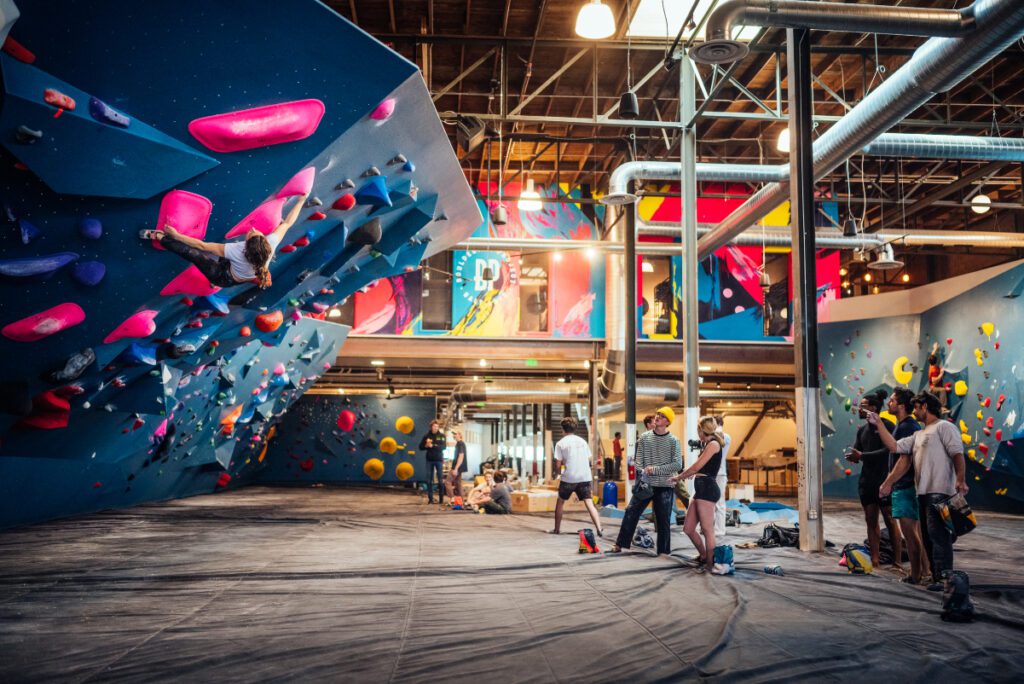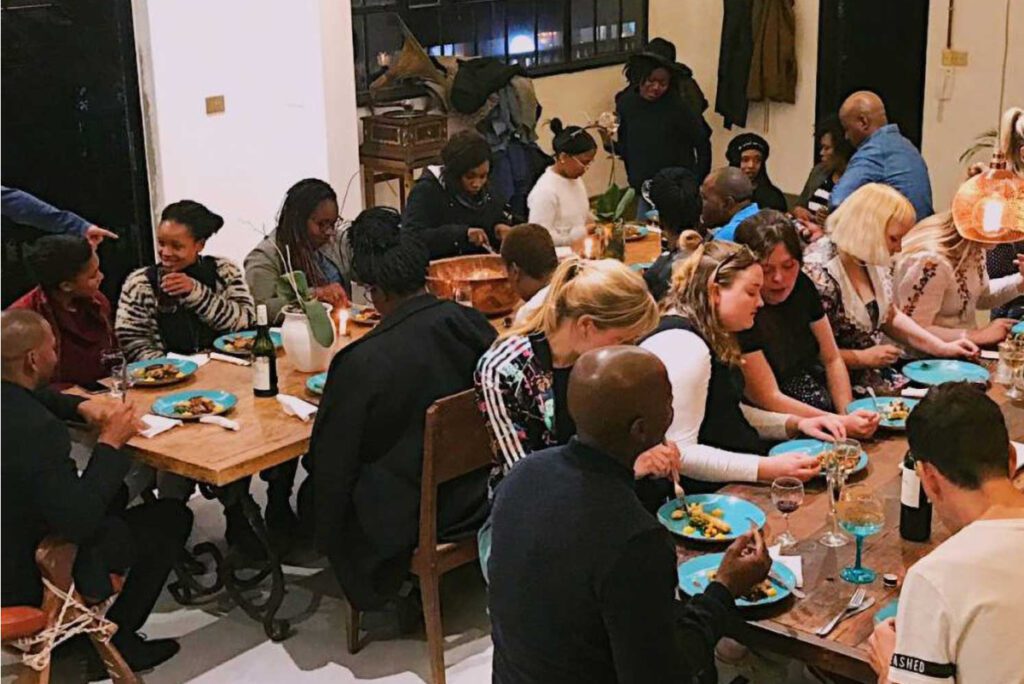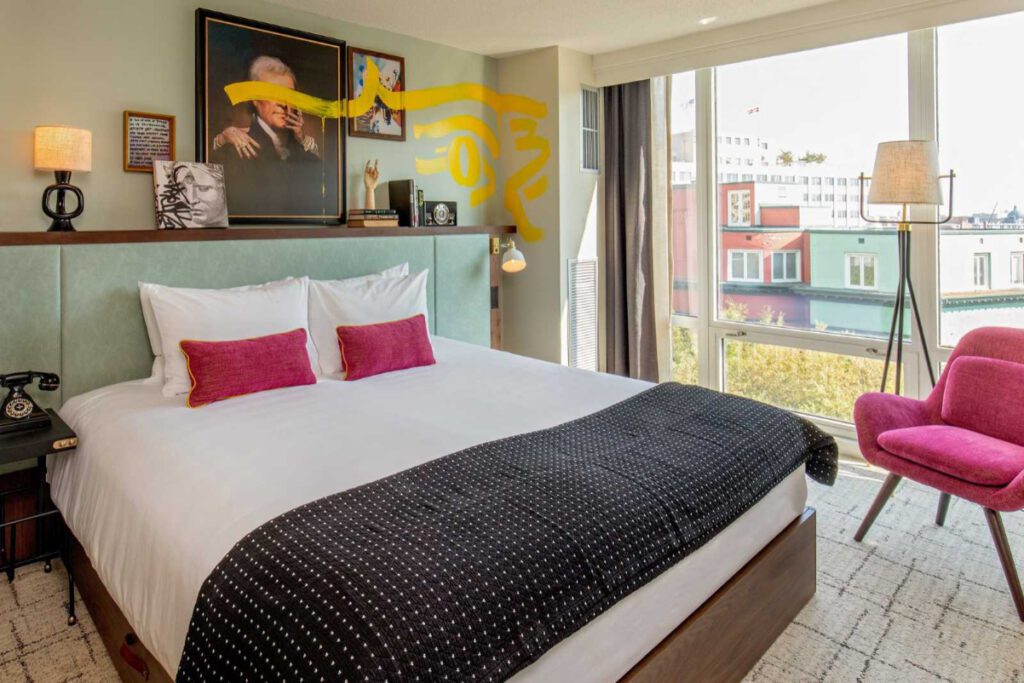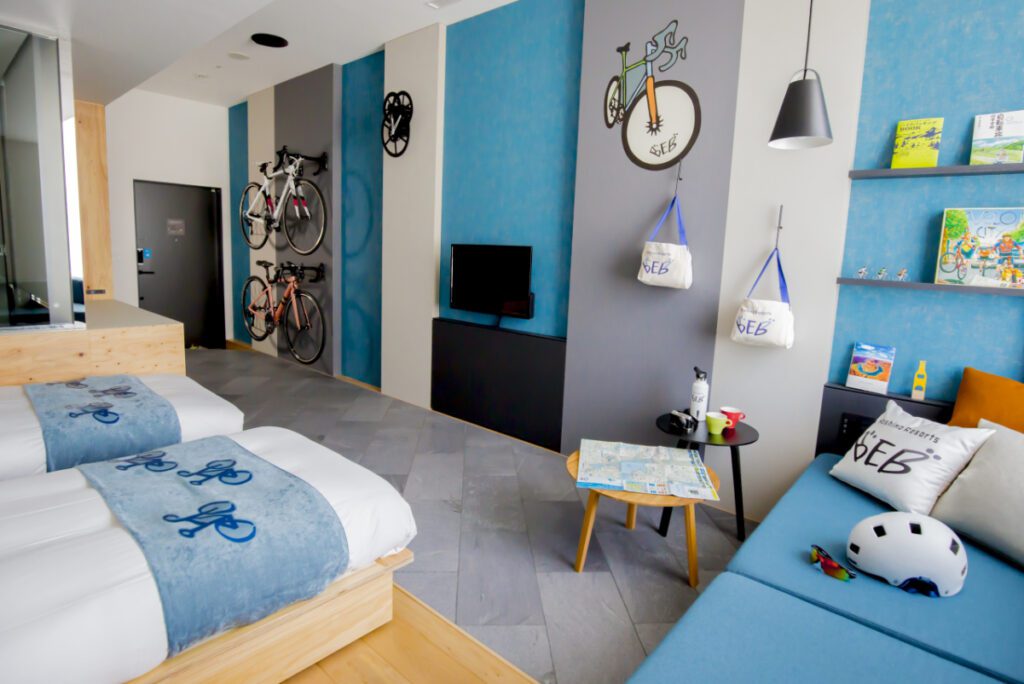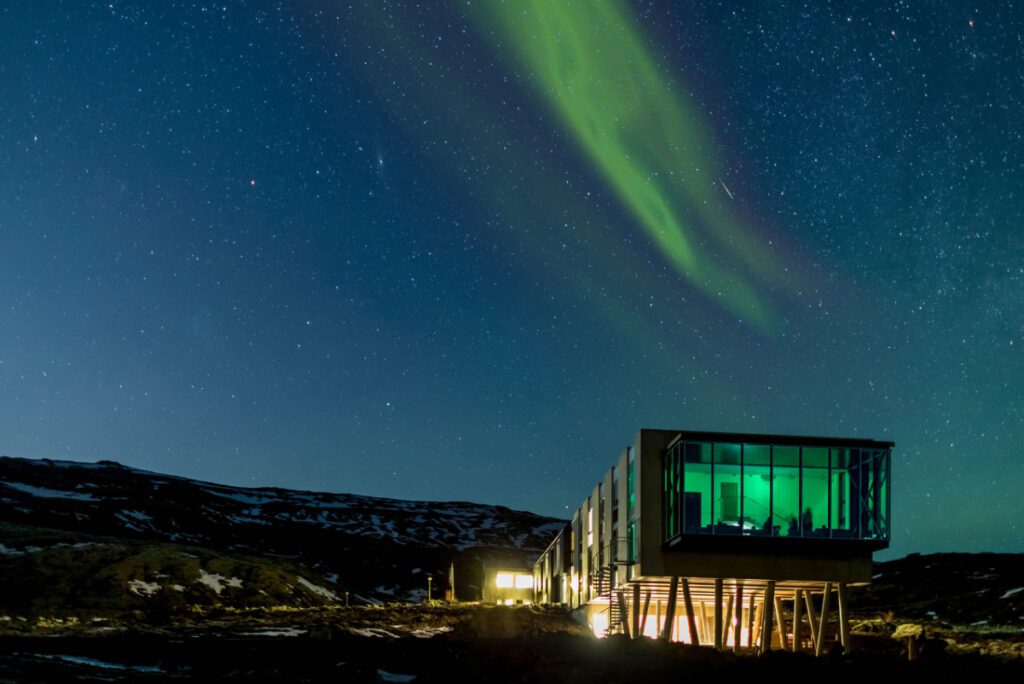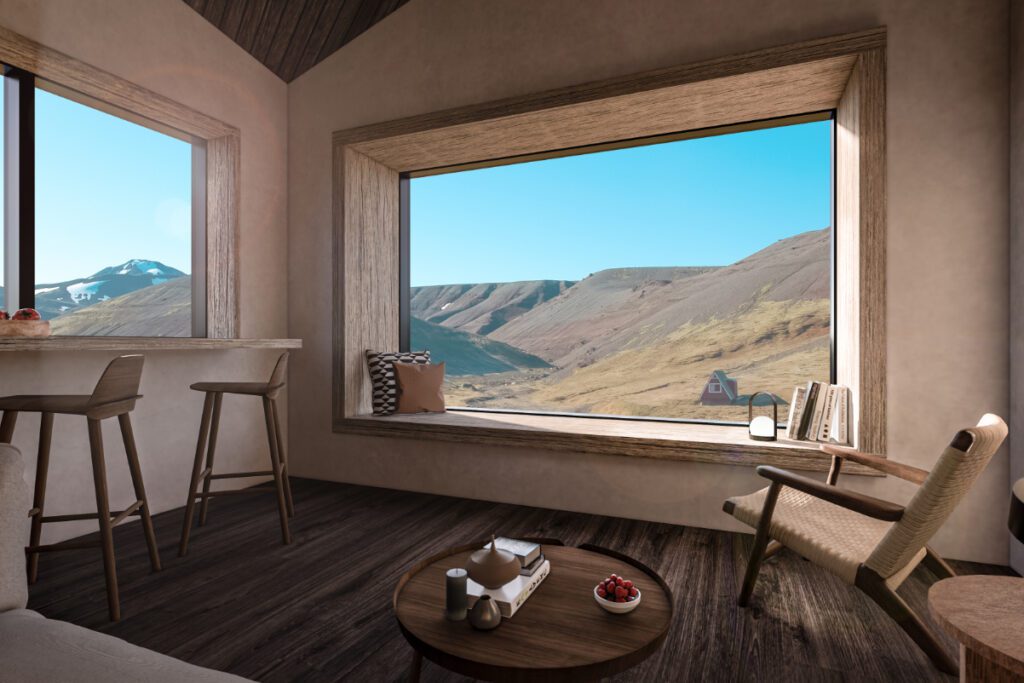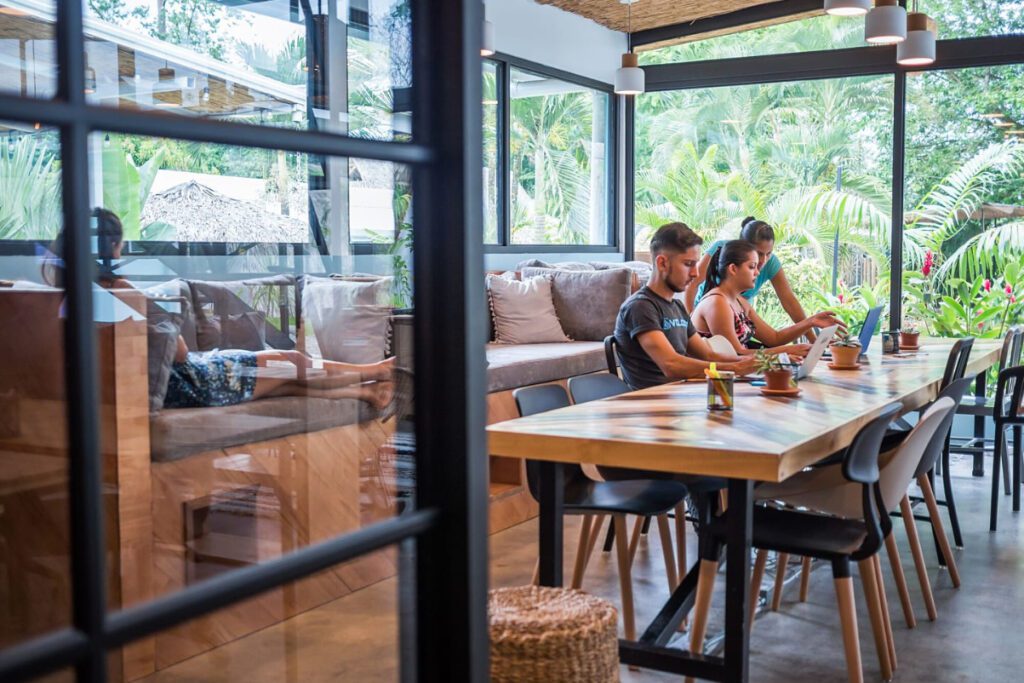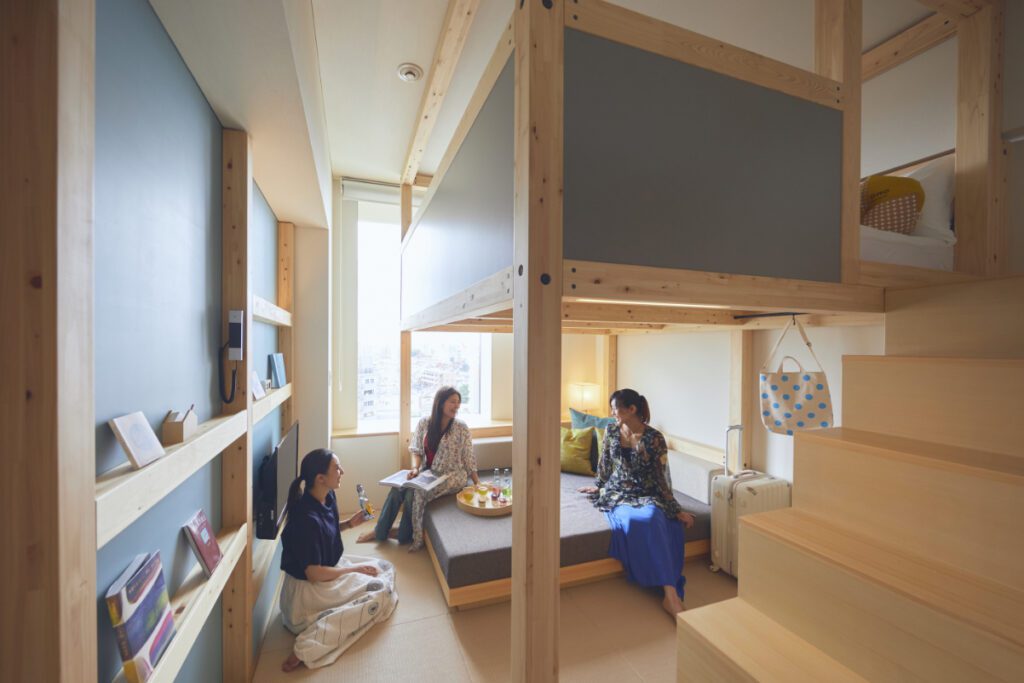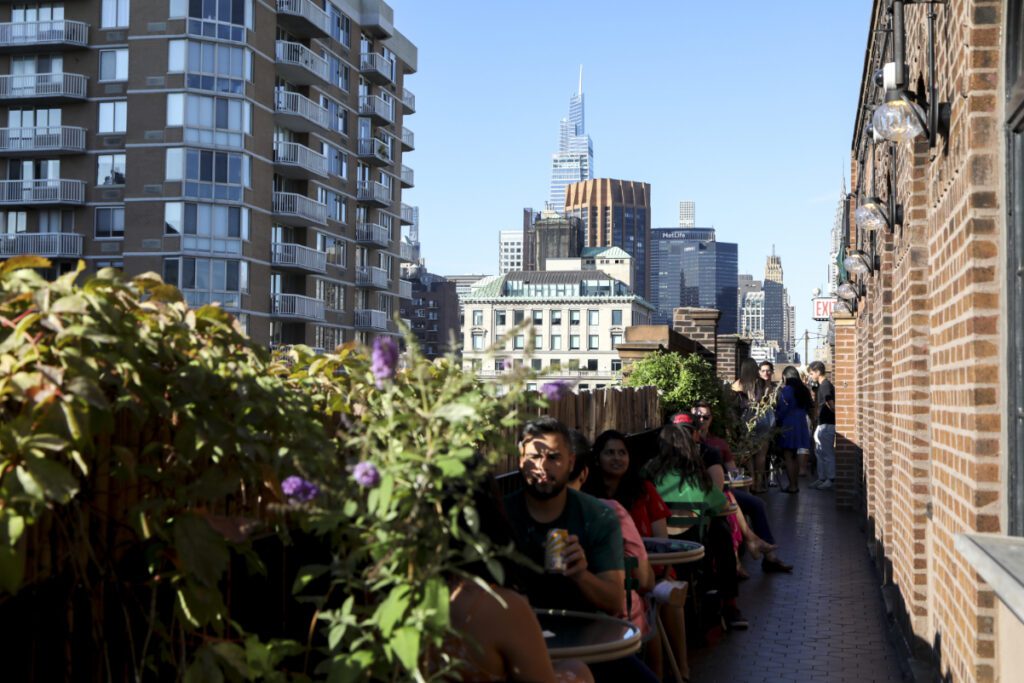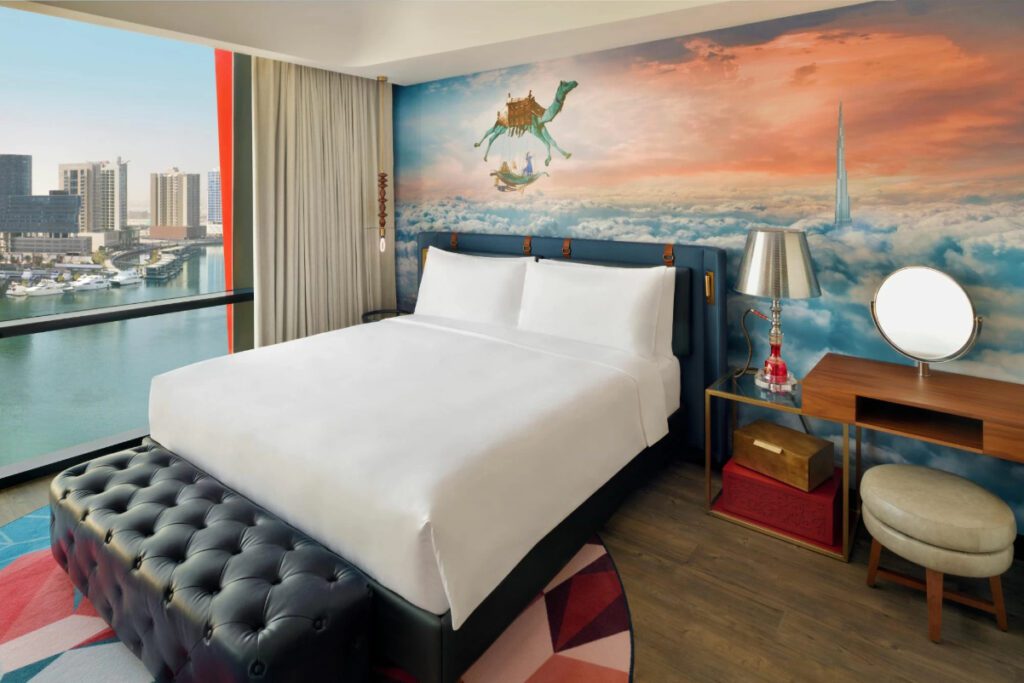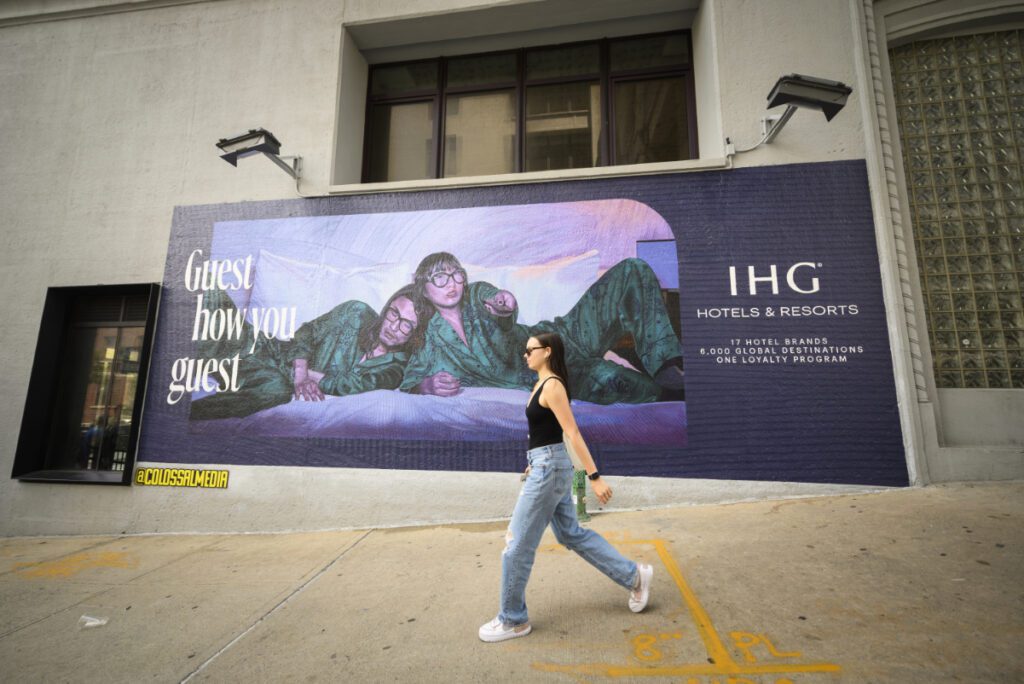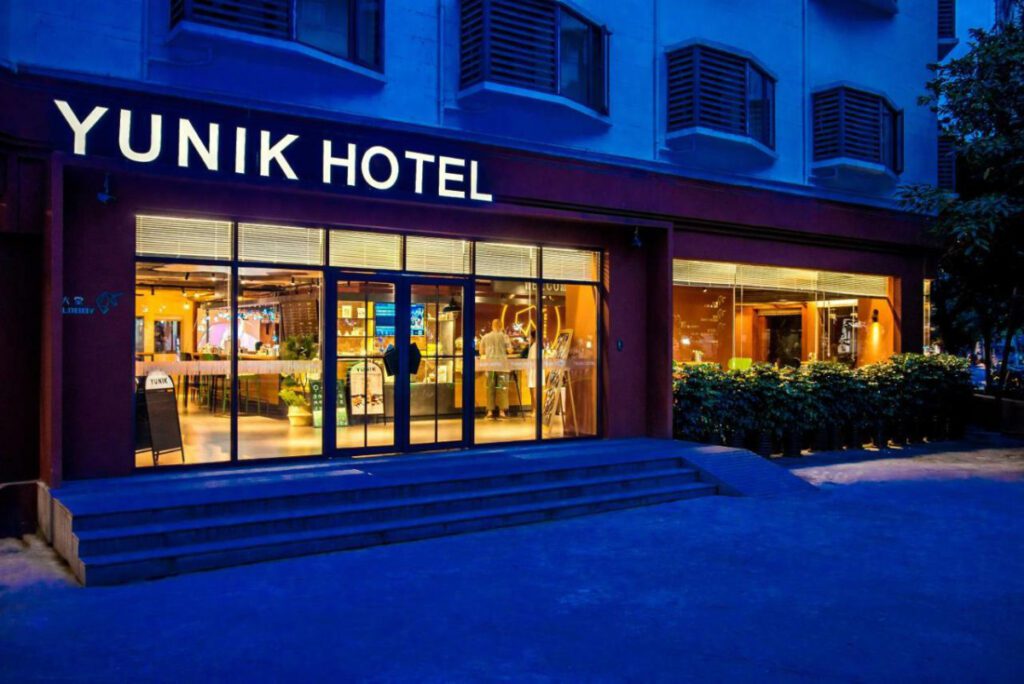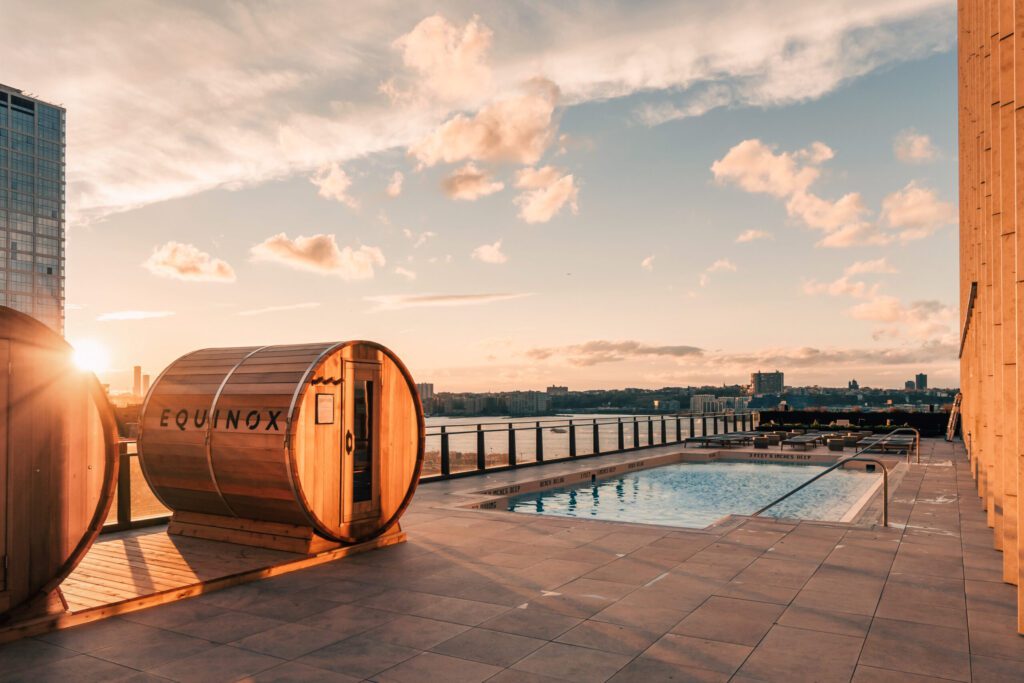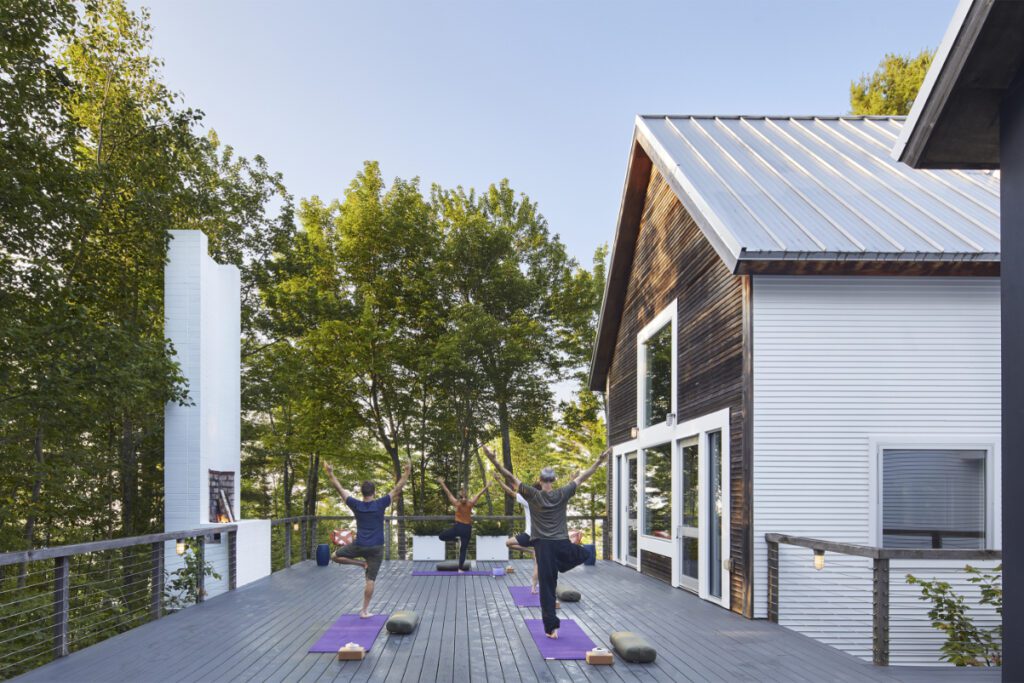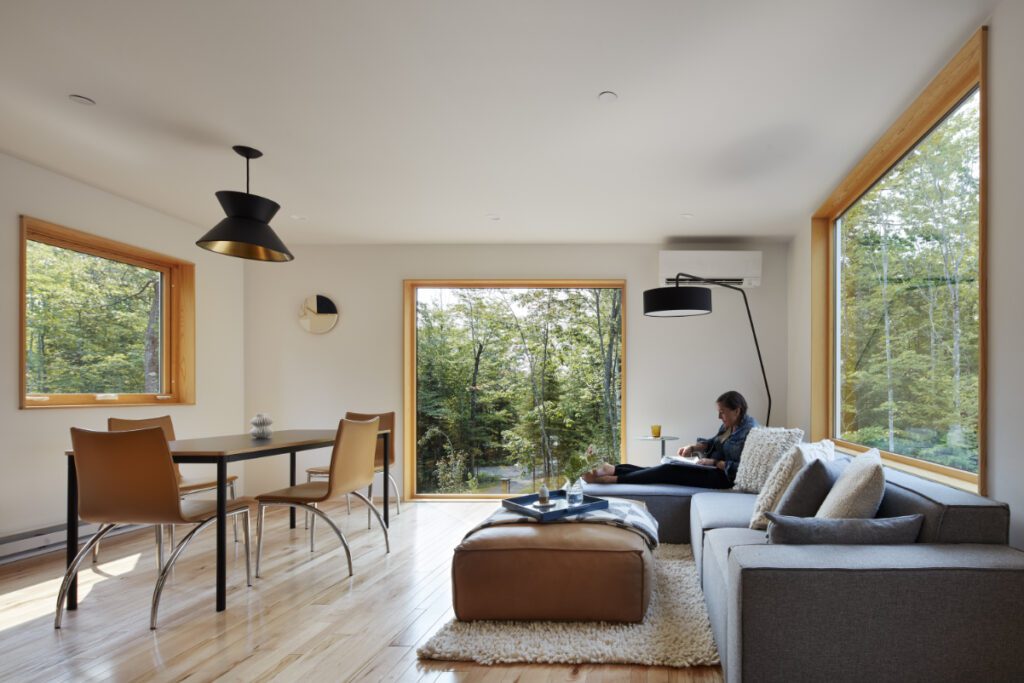Skift Take
Gen Z is poised to become the future of travel. So it's time to separate the hype from the reality. It's also time for hoteliers to level up their design and marketing games.
Too many hoteliers are waiting for Generation Z — the cohort born roughly between 1997 and 2012 — to get more spending power. But they shouldn’t wait. The savviest hotel brands are already preparing for the post-millennial demographic’s rise.
This deep dive will investigate the factors likely to remain part of Gen Z long-term. We expect next-generation travelers to shed some youthful traits as they become parents or otherwise expand their lives. So we’re only interested in their traits that will last over time.
“Everything you think you know about millennials? Concentrate it tenfold, and you get Gen Z,” said Fred Lalonde, co-founder and CEO of Hopper, an online travel agency with an outsized share of Gen Z customers. “Other generations are a continuum, but the millennial-to-Gen-Z span is a cliff. The next generation is completely detached from many old habits.”
The caricatures of Gen Z are well-known — and easily dismissed. So Skift spoke to experts and some Gen Zers themselves to paint a (hopefully) nuanced, sophisticated picture.
Most definitively, Gen Z grew up in an age of always-on broadband internet. That will likely mold their assumptions and expectations for years to come.
Another trait likely to define Gen Zers, even as they age, is a craving for community. Post-millennials are about twice as likely to say they feel lonely as Baby Boomers. That’s remarkable, given that youth is a peak time for socializing. So hoteliers can fill a hospitality gap by embracing these individuals as they are, welcoming them, and creating ways for them to connect.
Another theme: Gen Zers in many countries are likely to have a relatively low rate of independent living compared to earlier generations. The inadequate housing supply in many cities is a problem that won’t be solved overnight. As people in this demographic start families later or buy homes later, they may retain their lifestyle of owning less and experiencing more.
Yet another trait likely to endure is the post-millennial consciousness of the climate emergency. Gen Z is relatively the most exposed of all of us to the forecasted perils of the coming decades. Surveys suggest that this demographic cares more about sustainability than any past generation.
Digital Natives Using Social Media
Post-millennials are the first people to have always had round-the-clock internet connectivity.
They see the physical and digital worlds as a seamless spectrum, expect connectivity at all times, and crave authenticity. While it’s not surprising that social media is a key resource for them, there are nuances in how Gen Zers use social media that many hoteliers miss.
“With millennials, there’s a lot of representing your own image on social media, which is very much a one-way street,” said Margaux Constantin, a partner in McKinsey’s travel, logistics and infrastructure practice. “With Gen Z, what we’re seeing is they’ve been a little bit overexposed to this one-way social media communication. So they’re much more about dialogue.”
Gen Zers typically hunger for what comes off as genuine because they crave authentic emotional and intellectual expression — even if the content is created in synthetic ways and with repurposed material — as a relief from a world filled with fakery.
“When it comes to traveling, Gen Z prioritizes authenticity and living in the moment,” said Sharon Silverstein, the head of U.S. verticals at Snap, the owner of Snapchat. “They don’t only share the most picture-perfect photos. They appreciate the funny, silly, real moments that make a trip truly memorable.”
Gen Z enjoys discovering things first and being part of an active peer community that shares new social experiences and adventures.
“TikTok introduced me to a lot of local restaurants that I would’ve never found myself,” said Ashley Liu, a fourth-year student at the University of British Columbia in Vancouver who recently studied abroad in London. “Things like ‘hidden gem’ and local food reviews are two of my favorite types of videos.”
Liu describes TikTok as a convenient and centralized location where activities, food, and photo spots are aggregated.
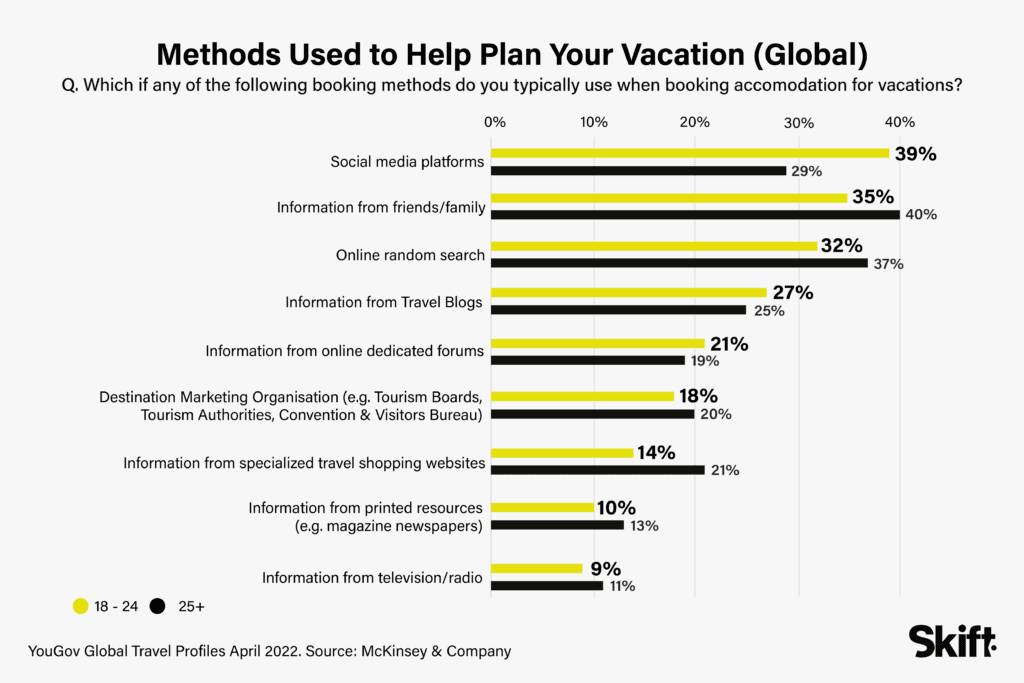
“Social media is a strong tool for brands to reach this generation,” said Chelsea Bachman, senior research account manager at MMGY Travel Intelligence. “We can’t say for sure that this will be the only thing dictating how Gen Zs find out about brands in the future. But the propensity to turn to social media for travel information and inspiration is definitely there for this generation.”
The Gen Z cohort tends to like social media influencers, too. These don’t have to be celebrities.
“I’ve come across TikToks of others documenting their stay at fancy hotels, but those are mainly luxury hotels,” Liu said. “It appeals to me, especially if it’s someone I actively follow.”
One non-celebrity example is Abena, a.k.a. TravelingTuesdays, whose content appears on TikTok and elsewhere — and who has also led trips sold by the online travel agency TrovaTrip.
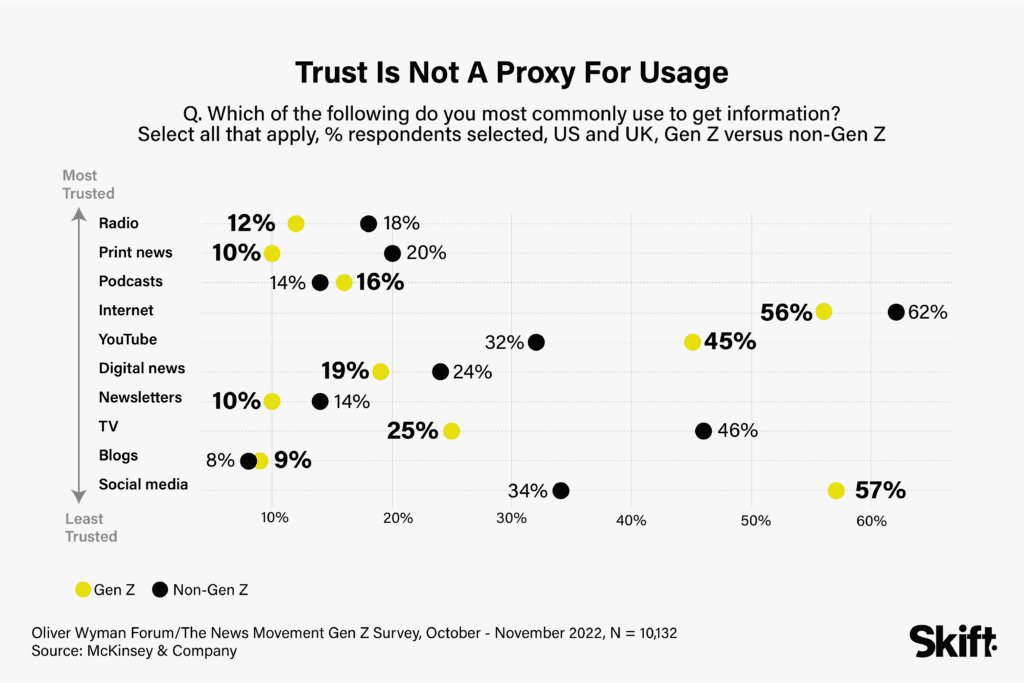
Yet some influencers are well-known entrepreneurs, like Paris Hilton. In February, a 10-minute TikTok featured Paris Hilton and other content creators, defying the genre by satirizing marketing.
“Paris Hilton has been an incredible partner in this regard because when she posts something about one of our brands, it creates this relatability,” said Matt Schuyler, Hilton’s chief brand officer. “If we can build that brand relatability today, then when Gen Z expands their types of travel, they’ll think of us first. It’s branding as a long-term play.”
Gen Z effectively takes on the role of being their own travel agent to curate personalized unique experiences. This group relies on reviews and relatable travel opinions to incorporate multiple viewpoints in their research and decision-making for trips.
“Something with a comedic spin or more relevance could attract Gen Z a lot more than something that is crammed full of information or testimonials,” said Gurnoor Minhas, a fourth-year student at the University of British Columbia who recently returned from study abroad. Minhas suggested that keeping things simple could prevent marketing from getting lost in the complexity of traditional aesthetics and details.
Gen Z Values Relatability
Relatability is frequent theme among Gen Zers.
In her work as a linguist, Sarah Ogilvie at the University of Oxford has compiled a data bank of 70 million words posted online by post-millennials called the iGen Corpus. Analysis reveals that this group uses words emphasizing authenticity much more than older people on average. Popular Gen Z words include relatable, real, true, and honest. (See more context in the book Ogilvie co-wrote, Gen Z, Explained: The Art of Living in a Digital Age.)
This pattern has an implication for the hotel sector. Post-millennials often show more desire to connect with local communities than past generations, and traveling has become part of their self-expression and self-discovery in a nuanced way.
“There’s this sort of exploration of identity, as opposed to just consumption of experiences, which is quite a different shift,” said Constantin of McKinsey. “For Gen Z, this experience economy feels like buying goods to millennials.”
Constantin references the psychologist Abraham Maslow’s “hierarchy of needs” to suggest that while millennials focus on self-actualization for living with the best experiences, Gen Zers are more about self-transcendence, which translates to more soul searching and exploring alter egos in their travels. This follows the pattern of Gen Zers hoping to align ethics and values with their spending decisions.
Yes, that’s been true for young people in many eras. But greater loneliness is reported by Gen Z than by earlier generations. So hotels need to make emotion the new brand standard. Hotels can help compensate for some of the loneliness next-gen travelers may feel by creating welcoming spaces where they can connect with others, including locals.
Hostelworld, an online travel agency whose core demographic is Gen Z, has been attempting to help act as a go-between for travelers and hostels.
“When you look on a listing, we show you how many people are going to be at the hostel and what nationalities those people are going to be, plus how many people will be at the destination generally,” said Johnny Quach, chief product officer and chief marketing officer.
“But the really powerful thing happens when you make a booking,” Quach said. “About two weeks before your trip, we put you into a chat room with everyone who’s going to be there at the same time in the city and everyone who’s going to be in your hostel around the time you’re there.”
While 3-star and 5-star hotels still rank in the top accommodation types that Gen Z frequent, hyper-social hostels and rental lodgings are also winners. This may point to a shift in the types of experiences this rising cohort values.
To appeal to Gen Z, traditional hotels may want to consider fine-tuning the narratives they tell about themselves. For example, Viceroy’s Hotel Zena, in Washington, D.C., is themed entirely around women’s empowerment — with some of the design inspiration coming from the Gen Z daughter of its designer: Andrea Dawson Sheehan, principal of Seattle-based Dawson Design Associates.
Less evident beneficiaries might be hotel brands that make space for niche interests that are becoming more prominent. Online gaming is one, and the E-Sports Hotel is an example of a hotelier response. Traditional sports are another. Japan’s Hoshino Resorts recently debuted BEB5 Tsuchiura, a property themed on cycling and adjacent to a cycling trail in the Ibaraki prefecture northeast of Tokyo.
Two-thirds of Muslim Gen Z travelers, for example, said they’re looking for cultural or nature immersion in their chosen destinations, according to a Mastercard-CrescentRating Muslim Gen Z: The Next Generation of Travelers report. But many hoteliers miss the Muslim market.
Constantin of McKinsey suggests that many hotels will likely turn to community management and year-round programming to attract subgroups.
Activities might include a local pickleball tournament or a cosplay, role-playing, or Comicon convention. Expect hoteliers to make more partnerships linked to thematic interests, such as the music festival travel site Lyte and Muslim travel site HalalBooking.
Young people in every era have always focused on self-discovery. Still, the internet has exposed Gen Zers to an endless array of personality types and sub-groups of interests, enabling them to draw more nuanced and finer distinctions than previous generations.
Exhibit A: In many Western countries, Gen Z tends to define sexual and gender identities in more gradations than previous generations have.
Some hotel groups have taken note. In Australia, Hilton has taken a few approaches toward LGBTQIA+ inclusiveness, such as staff training with the help of advocacy group Minus18 and support for that group’s program that runs an alternative school formal where queer teens can be their true selves.
Hotel marketing will more likely gain traction if it matches Gen Z inclinations.
“In the past year, we launched a marketing campaign that deliberately shows real-looking people in real-looking situations,” said Connor Smith, vice president, masterbrand strategy and awareness at IHG Hotels & Resorts. “When they’re being told that they can be cared for however they want to be cared for, that’s a really powerful message for for Gen Z, in particular. It’s the idea of no matter who you are, no matter how you want to show up, you will be seen and valued.”
Yet the issue is more than marketing savvy. A brand’s message on, say, TikTok has to translate into operational delivery.
Making it seamless for hotel guests to stream their content from their accounts with video and music services is becoming table stakes as CitizenM, Marriott (with its smart TVs in most of its hotels), and Jen by Shangri La show.
Another new Gen Z expectation is making it easy for guests to order food from external delivery services, as ResortsWorld’s partnership with GrubHub in Las Vegas demonstrates. Marketing partnerships with Gen Z favorite brands through “collabs” and “drops” can also help.
Even updating how your service is delivered for a more informal generation can be an evasive action long-established brands can take to stay relatable.
Over at Hilton, research has found that Gen Zers like lots of hooks and pegs on the wall to hang their belongings and that they typically don’t want doors to the closets in the guest rooms because they like to see all their stuff, said Schuyler.
Hyatt has been rethinking some of its public spaces. For instance, Hyatt Regency SoMa in San Francisco hired Dan Mazzarini to lead its most recent renovation project. Mazzarini’s BHDM design firm transformed the lobby into a multi-use space that can transition “from coffee to cocktails” – with workstations ergonomically designed for long stretches of screen time in between.
Loyalty programs are another area ripe for a refresh.
“As we think about the future of loyalty, we think about Gen Z because of its typical focus on individuality and identity, because we want to connect more on the emotional level,” said Peggy Fang Roe, executive vice president and chief customer officer at Marriott International, whose customer experience team led research on Gen Z.
“Points programs have traditionally been very points-driven,” Roe said. “So how can we complement points with benefits aligned more with people’s passions via the experimental space? Can we invite you to access something that maybe you wouldn’t normally have access to, for example? Can we help you connect to your sense of purpose and desire to improve our world?”
Gen Z Seeks Experiences
One long-term reality facing Gen Z is a housing affordability crisis in many cities, which can make young people treasure travel even more.
Many of Gen Zers may live longer with parents or in group houses and small apartments compared to past generations. For example, in the UK, an intergenerational commission forecasted that people born after 1980, on average, might need to take six times as long to save for an average house deposit as those born earlier.
“Access versus ownership is one theme we watch as a lens on the emerging generation,” said Roe, the Marriott exec. “We’ve seen greater mobility and fluidity in Gen Z because many of them are taking advantage of the ability to blend work with travel.”
“As a result, we’ve been contemplating things like, what if you could live with us anywhere around the world full-time for a while?” Roe said. “We’re looking at our current products and thinking how could we make that easier or how do we market merchandise our products differently.”
That said, tighter finances can mean choosier travel decisions. While people age 40 or older tend to tick things off a bucket list, Gen Z tends to explore their identities even it means repeated visits to favorite haunts. You’re much less likely to hear about “1,000 Things to See Before You Die” on TikTok than on Facebook, the platform for the olds.
“This is a generation that isn’t just happy being in a place and looking at it, they want to personally be part of hotels’ stories — interactive,” Dawson said. “They want to feel like they’re doing something – that they’re relevant — because they’re living at home and can’t afford to live otherwise. So Gen Z spends its money on experiences, but they want those experiences to be educational and have values that support their beliefs.”
To find good Gen Z travel examples, look to Utah, where Gen Z comprises the largest age group. It’s home to a new adventure-themed Evo Hotel in Salt Lake City.
“The future of hotel building is really about building community,” said Tommy Trause, head of new locations development and hospitality. “A hotel should amplify an emotional response to a location – and to activity.”
There are spaces throughout what Evo calls its “campus” — a sprawling complex meant to inspire connections among guests: fire pits with benches, a coffee shop, a rock climbing wall, and design-forward lounges that push traditionally pristine, uncomfortable hotel furniture to the side.
“It was very intentional that we have some pieces that are already worn-in because Salt Lake City has a great scene for vintage furniture,” said interior designer Rachel Sowieja of Vida Design. “The fact that they’re already worn-in adds to the comfort.”
India is the youngest demography in the world. Roughly two-thirds of its residents are under age 35. To appeal to this crowd, Thomas Cook India has been striving to be savvier about adding experiential components to trips, rather than relying on traditional flight-and-lodging packages. Add-ons have included food tours, deep-sea diving, and hot-air ballooning. Thomas Cook India’s latest ad campaign is told in 15-second bites to adapt to the short-form video trend.
In Johannesburg, South Africa, Curiocity Maboneng helps Gen Z connect with other travelers and locals through a mix of communal lounges and co-working spaces. It also offers connections to experiences around town, ranging from skateboarding to a “family dinner” that offers local kasi cuisine.
Portland, Oregon, is another place that continues to draw in Zoomers for its green spaces, liberal culture, and affordability. The city was named top in the U.S. in the 2022 Gen Z City Living Index.
Gen Z comprises the largest portion of guest stays at The Hotel Zags in Portland, said Zoe Hamilton, director of sales and marketing. Guests get access to “the shed,” which includes free use of GoPro and Polaroids cameras, cruiser and mountain bikes, walking sticks, fishing equipment, binoculars, and yoga mats. There are also board games and sets for bocce ball and cornhole.
At their early-career stage, Gen Zers have a heightened awareness of costs. Hotels can help find creative ways of making experiences more accessible.
“We’ve added installment payments, where you can pay for a trip over, say, six months, as an option for direct bookers,” said Yoshiharu Hoshino, CEO of Hoshino Resorts in Japan. “It’s been popular with Gen Z.”
In general, budgets will become less of a restraining influence on travel decisions with age. Yet Gen Z’s philosophy toward researching trips may last a lifetime.
So hotel brands could learn a trick or two from Hopper, the online travel agency claiming to have a higher share of Gen Z users than its main rivals do.
“Social commerce especially resonates with Gen Z,” said CEO Fred Lalonde. “Think gamified discounts. Earning cashback or vouchers for performing certain activities, such as interacting with a game, sharing a mobile app, or booking trips repeatedly.”
“Social commerce is underpinned by what’s called mounting loss, which essentially means you play games and earn credit that’s only redeemable within one app, boosting conversion,” Lalonde said.
A study on Gen Z behavior by Oliver Wyman described next-gen travelers as part of the “swipe-and-buy” squad due to their “always-on” purchase behavior. Gen Zers generally display less brand loyalty as they are often comparison shoppers, at least at this stage of their emergence. To the extent that they’re loyal, they prefer brands that provide options, hyper-personalization, and a sense of community.
Some critics will look at such behavior and call Gen Z “fickle.” Yet it’s not new for young people to be early adopters or to quickly drop something if the experience disappoints.
The point is that some types of friction for Gen Z remain overlooked by hoteliers or have yet to be addressed.
“In APAC [Asia Pacific], we see our younger travelers go to a market and stay in a Marriott for two days and then stay next door at the Ritz-Carlton for one night to get a selfie,” said Roe. “It’s almost like they’re building their own collab.”
Could hoteliers help post-millennial guests achieve their goals, perhaps through partnerships with photography services like Flytographer and experiences-booking agencies like GetYourGuide, KKDay, and Klook?
At an operational level, hotel companies may want to find ways to reduce the friction Gen Zers experience.
“I’m proud of how we’ve invested successfully to have a best-in-class service recovery time on social media of four minutes or less,” Smith said of IHG’s brands. “If you let us know on social that you’re staying with us for something exciting, like a birthday or because you love the view, or if you let us know about an issue or a service request like needing an extra pillow, we’ll respond to you and sort that out very rapidly.”
Ultimately a big-picture way a hotel group can respond to an emerging demographic’s new tastes is to ensure its mission and brand platform are in sync with them.
“Both millennials and Gen Zs often want to align themselves with brands that share their values,” said Marc Speichert, chief commercial officer of Four Seasons. “For our brand, this includes our belief that true luxury is not about rigid, impersonal service.”
Hyatt, as another example, has responded to emerging preferences by tweaking its portfolio to offer design-led brands, such as the ones in its JdV collection of independent hotels, and new brands like Caption, said Amy Weinberg, Hyatt’s senior vice president, loyalty, brand marketing, and consumer insights.
Gen Z Redefines Personal Wellness
“Wellness” has tended to mean “spa” to previous generations of hotel-goers. But Gen Z has redefined wellness as well-being, given the burnout it’s often experiencing at an earlier age.
Gen Zers generally show a greater willingness to explore health more holistically than just physical fitness, setting aside that it has a higher rate of obesity than comparable past youth cohorts.
Whether it’s hiking or herbal, wellness took on an entirely different meaning for young people after the pandemic’s clampdown on socializing led to a renewed emphasis on living life to its fullest.
“We’re seeing Gen Z interest in getaways that include forest bathing, fruit harvesting, and cooking courses that involve plant-based ingredients,” said Jennifer Andre, vice president of business development at Expedia Group Media Solutions, the online agency’s advertising agency for travel companies and destinations.
For many Gen Z students, the pandemic was the catalyst behind taking a gap year – typically a semester abroad to travel as life education. As the world moves to online learning or hybrid models, the proportion of students seeking travel seems to grow.
The Gap Year Association noted that for the 2020-2021 academic year, as many as 130,000 U.S. students took gap years, compared with 40,000 to 60,000 before the pandemic.
As more members of Gen Z travel, they’re redefining wellness to be more than just massage treatments.
Chris Norton, CEO of Equinox Hotels — the brand affiliated with the U.S. luxury fitness club — said the hotel’s comprehensive approach to wellness appeals to Gen Z in particular, especially its focus on sleep and nutrition.
“Gen-Z is a generation that focuses on the importance of self-care and the idea that an individual can truly have it all,” Norton said. “They’ve pushed for wellness in the workplace and are strong proponents of a work-life balance, and inspired sober-curious movements worldwide.”
Hyatt’s sober-curious program Zero Proof, Zero Judgment gained traction largely among Gen Z. Does that mean we’re waving goodbye to the hung-over spring breaks of yore? Well, all things in moderation. VacationRenter noted that the 10 most-booked destinations for last-minute spring break travelers are a lot less toes-in-the-sand-and-beer-in-hand than feet-in-a-museum this year. As of March 6, its top 10 destinations for reservation dates between March 11 to 24 were all cultural capitals, including Dubin, Amsterdam, Paris, and Barcelona, in order. On the other hand, there’s no shortage of places to drink in those cities.
Gen Z’s partiality toward wellness is among the primary trends that Charlestowne Hotels anticipates will surface in the next few years, said its chief marketing officer Michael Cady.
“We anticipate Gen Z travelers will be more compelled to embrace non-traditional and one-of-a-kind travel offerings, like glamping, traveling cross-country in a car for a year, and culturally immersive exploration activities,” Cady said.
He pointed to Wild Rice Retreat as an example. The new “center for arts and wellbeing” sits on the shores of Lake Superior in Bayfield, Wisconsin. Guests are welcome to organic dining, yoga, art classes, meditation sessions, and painting classes. The eco-friendly chic Scandinavian-style cabins — or hostel-model shared “treehouse” accommodations — all feature oversized windows with views of the 100-acre wood.
Accommodations designed to bring the outside in align with the “social media and digital detox” priorities for Gen Z, Cady said.
Caring for Others and the Planet
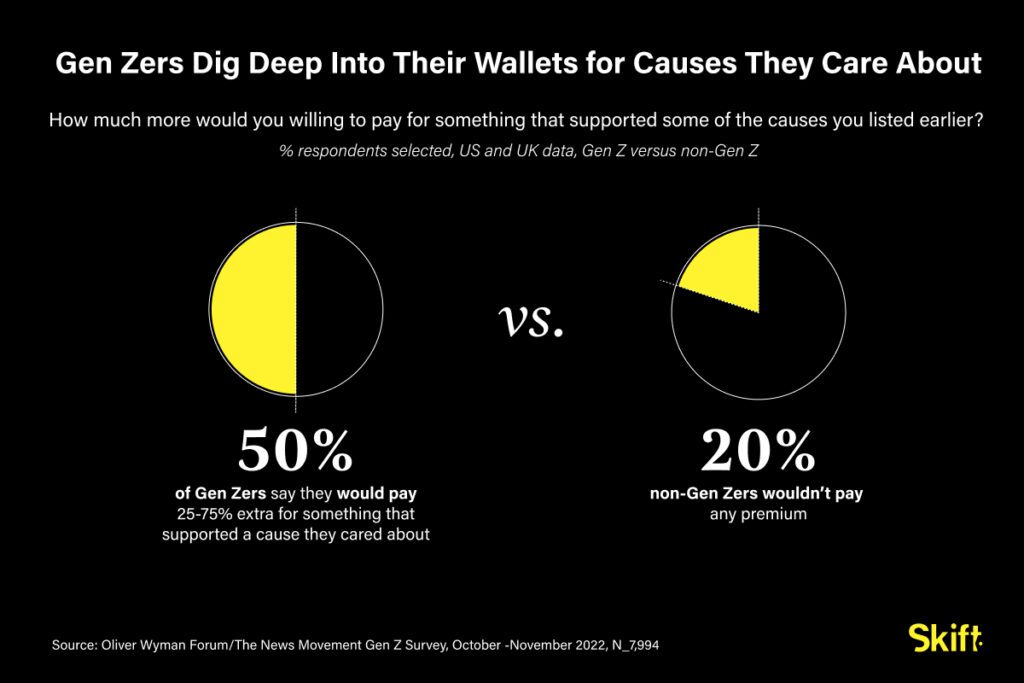
Vanguard brands pushing for radical cuts to their carbon emissions — even if their ambitions are imperfect — are prepping for a time when a rising group of consumers is willing to pay more for travel with a reduced climate impact.
“Gen Zs want to feel a part of something greater than just what a brand sells,” said Eva Stewart, global sector head for travel and tourism at YouGov. “Companies must think of values they wish to espouse and focus on building a community of people who believe in shared purpose.”
One caveat: Most hotel companies haven’t yet persuaded Gen Z they’re making legitimate reductions in carbon emissions. Some post-millennials have skepticism about the effectiveness of many sustainability efforts, such as buying carbon offsets.
Another wrinkle: The newest generation is still constrained by early-career circumstances. While sustainability is often considered, many have yet to establish financial stability, which creates a disconnect between their intent and actions when booking travel and accommodations.
“Well, [it’s] literally just price,” said Jonathan Chan, a fourth-year student on exchange in Copenhagen. “That is the only thing that matters.”
So it remains to be seen whether Gen Z’s travel purchase choices will reflect their values as their spending power increases with age. Today, young people are like all humans in that their words and actions don’t always stack up concerning carbon emissions.
Here’s a larger point: Gen Zers often have high expectations for brands than previous waves of consumers. For Zoomers, a hospitality experience is just as much about buying into a brand’s ethos as buying a three-night stay, said Dawson, whose interior design studio focuses on boutique hotel builds and reimaginings for brands like the sustainability-themed 1 Hotel, Populus, and Room2.
It seems plausible that many Gen Zers will keep a habit of partly judging brands by their environmental impacts — and rejecting inauthentic posturing — for some years to come.
Tomorrow’s Travelers
Hoteliers may be tempted to procrastinate in responding to the ascent of Gen Z.
Many Gen Zers today have pinched incomes and are yet to realize financial stability.
Yet, according to McKinsey, post-millennials are predicted to make up a third of global spending power by 2035.
Hotel brand building and development happens on a long timescale, making it hard for hotel companies to anticipate and be in sync with demographic changes.
So understanding the lasting traits of Gen Z is critical. Hotels that adopt tactics, designs, and philosophies that resonate with this cohort may help generate a reputational advantage over peer brands.
A larger point of this deep dive has been that Gen Z considers traveling to be more than a way to learn about other cultures. They also see it as a way to refine their own identities. The irony is that this generation — so famously “always online” — may be more enthusiastic about real-life travel experiences than past ones because they tend to be more intentional about their trips.
The upshot is that Gen Zers will tend to gravitate toward hotels that let them be themselves, underpin their missions with relevant actions, and foster connection. It’s a high bar, but that’s what young people are supposed to do — challenge everyone to be better.
Tags: deep dives, demographics, future of lodging, gen z, hotel brands, hotel design, skift deep dives, snapchat, tiktok, wellness

